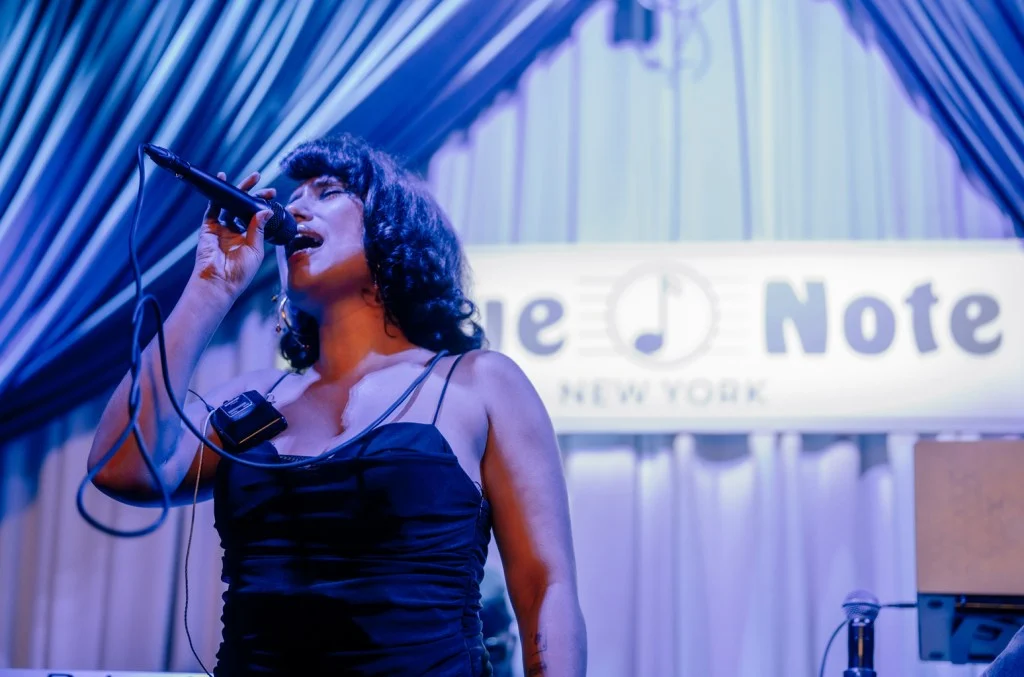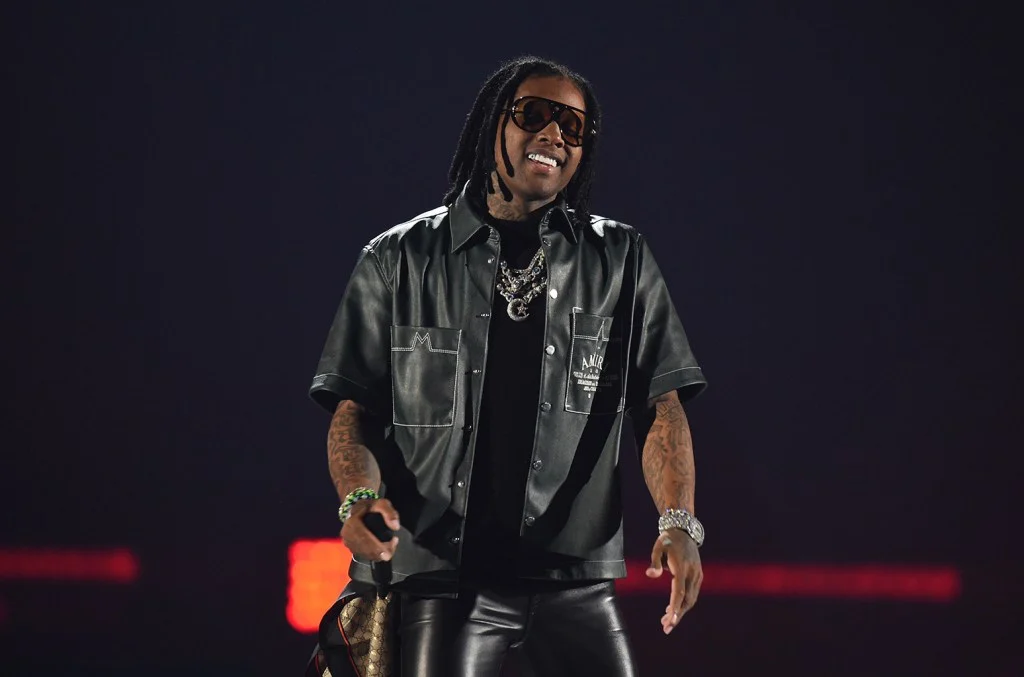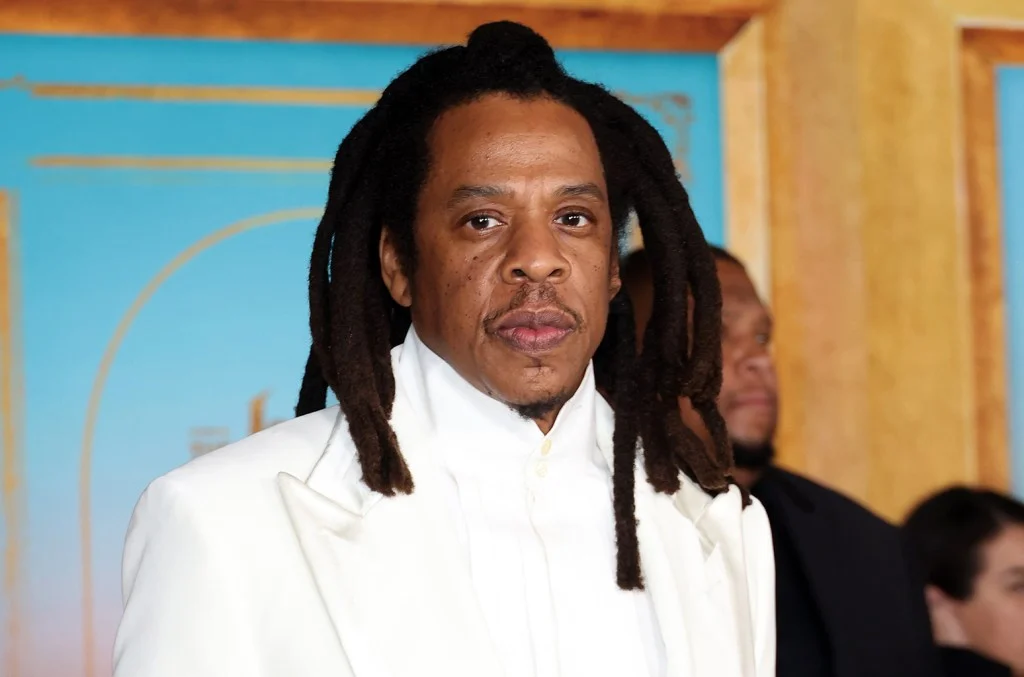Business
Page: 69
Blue Note Jazz Club has confirmed that plans to open a new venue in London, England will proceed following the granting of a late license by the local council. The 350-capacity venue will be the first Blue Note Jazz Club to be established in the U.K. and is slated for an early 2026 opening.
The news follows reports of opposition by the Metropolitan Police Service and local residents. In February a Licensing Sub-Committee Report from the City of Westminster outlined a number of objections from the local police enforcement, who objected to the venue’s opening on the grounds it would undermine the licensing objective of “prevention of crime and disorder”.
The move was criticised by a number of local musicians and industry figures, with claims that the council was stifling the capital’s nightlife scene. The venue was initially granted a license that would see the club close at 11:30 p.m., but Steven Bensusan – president of Blue Note Entertainment Group and son of the original Blue Note Cafe founder Danny Bensusan – told Sky News that the opening of its planned European flagship venue may not be viable without a late license. “If they’re not giving us a late license, I can’t imagine how they would be supportive of other smaller venues, which are important for the ecosystem in general.”
Trending on Billboard
However the Westminster City Council has since reversed its opposition and said that the “venue management have engaged extensively with local people to improve their application and address the concerns that were raised by the police.”
The venue will be based in the basement of the St Martins Lane hotel in Covent Garden in central London. The license will allow the club to open until 1 a.m. on Monday to Saturday, to midnight on Sundays.
The Blue Note Jazz Club will host two performance spaces: a main room with 250 person capacity, alongside a secondary 100 person capacity space. The venue will host a full-service kitchen and beverage menu and will be open for dinner throughout the week.
The new venue will continue the expansion of Blue Note Jazz Clubs internationally. The original club in New York City was opened in 1981, and new venues have since opened in Milan, Beijing, Shanghai, Tokyo, Rio de Janeiro and São Paulo. Stevie Wonder, Tony Bennett, Ezra Collective and more have all performed at the club and its sister institutions.
Steven Bensusan, president of Blue Note Entertainment Group said in a statement, “We’re excited to be coming to London and grateful to Westminster Council for recognising what Blue Note can bring to the city’s nightlife. As we prepare to open in early 2026, we’re looking forward to bringing world-class jazz and a deep cultural legacy to one of the greatest music cities in the world.”
Jury selection began at Diddy’s sex trafficking and racketeering trial on Monday (May 4), and some celebrities like Kid Cudi and actor Michael B. Jordan were mentioned during the selection process. Explore See latest videos, charts and news See latest videos, charts and news According to CNN, the Sinners actor won’t be called to testify […]
This is The Legal Beat, a weekly newsletter about music law from Billboard Pro, offering you a one-stop cheat sheet of big new cases, important rulings and all the fun stuff in between.
This week: Prosecutors delete Lil Durk’s lyrics from his murder-for-hire case, jury selection begins in Diddy’s sex-trafficking trial, Led Zeppelin’s Jimmy Page is sued over a decades-old credits dispute and much more.
THE BIG STORY: Rap On Trial — Or Not?
When federal prosecutors indicted Lil Durk on murder-for-hire charges last year, they quoted from one of his songs, claiming the lyrics were a direct reference to the alleged shooting and evidence of his guilt.
That was a controversial choice. The use of rap music as evidence in criminal cases has drawn pushback in recent years, as critics argue it threatens free speech and can sway juries by tapping into racial biases. Some states have moved to restrict the practice, but many have not — and there are no such rules in federal prosecutions.
Trending on Billboard
In Durk’s case, his lawyers strongly objected to the use of his music, arguing the song in question was written and recorded months before the shooting even took place. They called the lyric allegations “false evidence” that had been unfairly used to indict him and to deny him pre-trial release. In a public statement, Durk’s family said he had been the latest rapper to be “criminalized for their creativity.”
Prosecutors initially defended the move, arguing that Durk had “repeatedly used his pulpit as a voice of violence.” But in an updated version of the indictment released last week, they backed down — removing all reference to his lyrics and instead focusing on other allegations tying him to the shooting.
The case against Durk will continue — in a separate filing, the feds stressed that the new indictment still contains “significant allegations that show defendant’s alleged role in the execution-style murder” — but it will do so without his lyrics.
Other top stories this week…
DIDDY TRIAL, EXPLAINED – Jury selection is officially underway in the sex trafficking trial of Sean “Diddy” Combs, ahead of opening statements next week. To get you up to speed before the trial gets underway, I put together an exhaustive explainer on everything you need to know about the Diddy trial — from the exact charges he’s facing, to key players in the courtroom, to the Cassie Ventura tape and much more.
AIN’T OVER YET – A federal appeals court revived a lawsuit claiming Sam Smith and Normani stole key elements of their 2019 hit “Dancing With a Stranger” from an earlier track, ruling that a judge prematurely dismissed the case and should have sent it to a jury. That’s a worrying ruling for any artist hit with a song-theft lawsuit; if such disputes must be litigated all the way to trial to be decided, they become dramatically more expensive.
WHOLE LOTTA LITIGATION – Led Zeppelin‘s Jimmy Page was hit with a new lawsuit over the credits to “Dazed and Confused,” reviving a decades-old dispute over the iconic track. Jake Holmes has claimed for years that he actually wrote the song, and he reached a legal settlement with Page back in 2012 to resolve those allegations. But in the new case, Holmes says Page is effectively ignoring the settlement and has released archival recordings that infringe Holmes’ copyrights.
SCENT SETTLEMENT – Revlon and Elizabeth Arden have fully settled a corporate espionage lawsuit, filed last year, that claimed several former employees “sabotaged” the companies’ decades-old fragrance partnership with Britney Spears and took the business to an upstart rival called Give Back Beauty. The settlements clear the way for Give Back Beauty to formally take over Britney’s lucrative perfume brand, which reportedly earns tens of millions per year.
JAY V. BUZBEE GOES ON – Jay-Z filed an unusual new allegation in his legal war with attorney Tony Buzbee, accusing the lawyer of ordering employees at his law firm to edit Wikipedia pages in an effort to damage the rapper’s reputation. The new claim was the latest salvo in a bitter fight that started when Buzbee filed a shocking lawsuit accusing Jay-Z of raping an unnamed girl decades ago.
Content creator and streamer N3ON has signed a record deal with EMPIRE, the company tells Billboard. Through the agreement, which EMPIRE calls the first of its kind with a streamer, the label will release a collaborative project from N3ON and his network of creatives. Jake Moritt at Proper Loud, a management company that specializes in […]
Jay-Z has filed an unusual new allegation in his legal war with attorney Tony Buzbee, accusing the lawyer of ordering employees at his law firm to edit Wikipedia pages in an effort to damage the rapper’s reputation.
The new claim is the latest salvo in a bitter fight that started when Buzbee filed a shocking lawsuit accusing Jay-Z of raping an unnamed girl decades ago. Jay-Z vehemently denied the allegation, which has since been voluntarily dropped, and has blasted Buzbee for allegedly trying to extort him.
In an updated version of an earlier case against Buzbee and his client filed Monday (May 5), Jay-Z is adding an eyebrow-raising new claim: That the lawyer made sneaky edits to Wikipedia as part of his alleged plot to harm the rapper.
“In violation of Wikipedia’s rules, Buzbee directed his employees to edit Wikipedia pages to enhance Buzbee’s image and damage Mr. Carter’s and Roc Nation’s reputations,” Jay-Z’s attorneys write in the amended complaint. “Users with an IP address directly linked to the Buzbee Firm made over 100 positive edits to Buzbee’s Wikipedia page.”
The lawsuit does not elaborate on what exact edits were allegedly made to Wikipedia. Reps for Jay-Z did not immediately return a request for comment.
In a statement to Billboard on Tuesday, Buzbee strongly denied the new allegation and the rest of Jay-Z’s claims: “Most of the pleading is nonsensical. All of it is meritless.”
The case against Jay-Z, filed in December, claimed that he and Sean “Diddy” Combs drugged and raped a 13-year-old girl at an after-party following the 2000 MTV Video Music Awards. Jay-Z forcefully denied the allegations, calling them a “blackmail attempt.” After just two months of heated litigation, Doe dropped her case without a settlement payment.
Weeks after the case was dropped, Jay-Z sued both Doe and Buzbee, accusing her of defamation and accusing both of malicious prosecution and other wrongdoing. The lawsuit called it an “evil conspiracy” against the rapper: “The extortion and abuse of Mr. Carter by Doe and her lawyers must stop.”
Buzbee and his client have denied the lawsuit’s allegations and moved to dismiss the case — arguing, among other things, that she cannot be sued for defamation over allegations made as part of a lawsuit.
Beyond the Wikipedia claims, Monday’s new complaint makes several other notable changes to the earlier lawsuit.
The new version of the case now also targets Antigone Curis, a New York attorney who served as co-counsel in the original rape lawsuit against Jay-Z. Naming Curis as a co-defendant, Jay-Z alleges that Buzbee “used Curis” because he himself was not admitted to practice law in Manhattan federal court — an issue that has since come to light in several of Buzbee’s cases against Combs in New York.
“It is clear that Curis joined the conspiracy to extort Mr. Carter, which was hatched in Alabama, and quickly became an integral part of the scheme by using her admission to the [Southern District of New York], weaponizing the civil justice system,” Jay-Z’s attorneys write in the new case.
The lawsuit also includes new claims about the alleged harm caused to Jay-Z by the rape accusation. It says Roc Nation lost contracts in the sports and entertainment space that would have generated at least $20 million; that Jay was personally denied a $55 million personal credit line; and that a company he’s associated with was denied a $115 million loan.
“At trial, plaintiff will present evidence demonstrating how the extortionate scheme, and the false complaint filed in New York, resulted in the loss of business opportunities to Mr. Carter [and] have served to preclude him from new business opportunities,” his attorneys write, before later adding: “Buzbee, Doe, and their co-conspirators must answer for all of this.”
Live events company Madison Square Garden Entertainment (MSGE) improved its revenue 6% to $243 million in the fiscal third quarter ended March 31, the company announced Tuesday (May 6). Operating income of $27.3 million marked a 63% improvement. The results “reflect continued strong consumer and corporate demand as well as a wide variety of live […]
As the sex trafficking trial against Sean “Diddy” Combs kicks off with jury selection in New York this week, radio DJs have all but dropped the Bad Boy Records founder’s catalog from their airwaves, Luminate data reviewed by Billboard shows.
Songs by Puff Daddy, P. Diddy and Diddy accrued just 1,671 airplay spins year to date, an 86% decline from the same time frame last year when the artists’ catalog racked up 11,870 airplay spins, according to Luminate. For a comparison, Diddy collaborator and Bad Boy artist Notorious B.I.G.’s catalog accrued 63,390 spins since the start of the year, Luminate data shows.
The decline in commercial radio play doesn’t just reflect a public turn away from the artist who is accused of running a large-scale criminal operation for his own “sexual gratification.” It also means the artist’s catalog could generate less than the $3 million in revenue that Billboard estimates it generated annually from master recording and publishing revenue from streams, sales and radio airplay between 2021 and 2023.
Trending on Billboard
Representatives for Diddy did not respond to requests for comment.
Revenue from music streaming subscriptions is still the most significant source of income for music companies, artists and other owners’ music rights. However, commercial radio play remains a significant source of income for the publishing side, sources said.
“For a mature catalogue, such as Sean ‘Diddy’ Combs … that portion of income impacted by a sharp decline in radio airplay is limited to 6 percent to 9 percent of total publishing royalties,” says Barry Massarsky, a partner at Citrin Cooperman and head of the firm’s music and entertainment valuation practice. Massarsky cautioned that only the catalog’s publishing revenue can be analyzed because there is no entitled performance right for sound recordings played on U.S. commercial radio.
In the United States, the performance rights organizations ASCAP and BMI pay a base rate of roughly 50 cents to publishing companies per radio spin. As radio airplay can influence stream counts, there is a residual paid out on the master recording royalties that brings the total payment per airplay stream to roughly $1. Popular songs can earn additional bonus money.
While the Diddy catalog’s airplay spins did not put him within reach of any bonus money — bonuses are typically paid out for songs that top 135,000 spins in a quarter — Billboard estimates his catalog’s publishing revenue was $10,200 less for the first 16 weeks this year compared to last year. If Diddy’s songs continue to generate the same average per-week-radio airplay spins they did at the start of the year — an average of 117 per week — it would mean a year over year decline of $34,300 compared to last year.
As of June 2024, Diddy owned his master recording catalog and publishing, which Billboard estimated earned about $2.4 million in master recording revenue and $600,000 in publishing revenue annually for the years from 2021 to 2023. Diddy’s share was $2.625 million in each of those years, Billboard estimated. Those estimates do not include credits and royalties for music assets beyond his own artist catalog.
It is unclear to what extent the accusations and lawsuits against Diddy may have contributed to the decline in airplay because airplay spins for his catalog rose for roughly the first four months of both 2023 and 2024, when several allegations that would later lead to lawsuits were already public.
Last year, Diddy’s catalog had the best start of the year in terms of airplay spins that it has had for any similar 16-week period since 2020, when the catalog accrued about 7,700 airplay spins. The second best 16-week period for Diddy’s catalog in terms of airplay spins was the start of 2023, when the catalog racked up nearly 11,000 spins.
Despite the decline in airplay, Diddy’s catalog remains popular on streaming platforms, though streaming activity during this period was almost half of what it was last year and was the lowest for this period than during any of the past five years.
In the first 16 weeks of this year through April 24, Diddy’s catalog accumulated roughly 29 million U.S. on-demand streams compared to nearly 52.7 million U.S. on-demand streams for the same period in 2024. The only other start-of-the-year stretch over the last five years when Diddy’s catalog had such a low stream count was in 2020, when it racked up 29.7 million on-demand streams from Jan. 1, 2020, to April 23, 2020.
Andrea Bocelli signed an exclusive, five-year worldwide agreement with AEG Presents for the creation and management of his live performances, in collaboration with his management team (Veronica Berti and Francesco Pasquero), agency WME and record label Universal Music Group. The deal, which begins on Jan. 1, 2026, covers all of Bocelli’s ticketed live events globally.
Mark Ambor, who scored his first Billboard Hot 100 entry with the smash 2024 track “Belong Together,” signed to Capitol Records. The singer-songwriter is currently touring in Europe and set to play festivals including Governors Ball, Lollapalooza (in both Chicago and Berlin) and Outside Lands. He concluded his North American tour last year.
Don McLean (“American Pie”) signed with Day After Day Productions for exclusive global touring representation. The singer-songwriter currently has more than a dozen tour dates lined up in the U.S.
Trending on Billboard
Country singer-songwriter Ink signed with Big Loud Records and Electric Feel Records. She is managed by SALXCO. Ink co-wrote three tracks for Beyoncé’s Cowboy Carter, including “16 Carriages,” “Texas Hold ‘Em” and “American Requiem,” as well as Kendrick Lamar and SZA’s smash single “Luther,” among many other credits.
Management firm Shelter Music Group announced the signings of five artists: Cheap Trick, Boys Like Girls, Chiodos, American Hi-Fi and Dead Poet Society. Cheap Trick is gearing up for its 2025 tour and a new album; Boys Like Girls will support the Jonas Brothers on its 20th anniversary stadium and arena tour; Chiodos is currently touring to promote the 20th anniversary of All’s Well That Ends Well and will embark on another tour in the fall, with a new studio album and more touring to come next year; American Hi-Fi are gearing up to celebrate the 25th anniversary of the band’s self-titled debut album; and Dead Poet Society are set to tour across Europe and the U.K. this summer, and later across the U.S. in support of Chevelle.
New Found Glory signed to Pure Noise Records, which released the band’s latest single, “100%.” The band is set to perform at Slam Dunk Music Festival before touring with The Offspring and Jimmy Eat World on the SUPERCHARGED: Worldwide in ’25 Tour in North America, followed by several U.K. headline dates.
Country singer-songwriter Mark Chesnutt signed with Conway Entertainment Group/Ontourage Management for management and Absolutely Publicity for PR. Chesnutt is represented by Risha Rodgers at WME’s Nashville division for live bookings.
RaeLynn signed with The Valory Music Co., which will release her latest track, “Heaven Is a Honky Tonk,” on Friday (May 9) in partnership with Red Van Records/Jonas Group Entertainment. The country singer-songwriter is touring with Jason Aldean on his Full Throttle Tour this summer.
British Columbia-based singer-songwriter Luca Fogale signed to Nettwerk, which released “Begin,” his first single of 2025, with more music set for release in the coming months. Fogale just wrapped a headline tour of North America and is currently touring in Europe. He’s managed by Colin McTaggart and Piers Henwood at Amelia Artists and booked by Grant Paley at Midnight Agency for Canada.
R&B artist RAAHiiM (“Peak (Fed Up)”) signed with MNRK Music Group, which released his single “Just Like Me” on Friday (May 2). He’s set to support Jessie Reyez on her North American tour beginning on June 10. RAAHiiM is managed by Joven Haye and booked by Olivia Mirabella, Yves Pierre and Jacqueline Reynolds-Drumm at CAA.
Capitol Christian Music Group signed singer-songwriter Eli Gable, whose debut single, “Holy Ghost Town,” releases May 16. The Ohio native moved to Nashville in 2020 and creates music that blends worship, folk and rock styles. Gable will join Rend Collective on the Folk! 2025 Fall Tour starting Oct. 17 in Portland, Maine. The CCMG roster also includes Chris Tomlin, Blessing Offor, Crowder and Franni Cash. – Jessica Nicholson
Universal Music Korea signed hip-hop artists Okasian and Bryan Chase. Both rose to prominence in Korea as part of The Cohort’s hip-hop crew. Both recently featured on “LOV3,” a track off Sik-k and Lil Moshpit’s [K-FLIP+] EP released in March.

Revlon has fully settled a corporate espionage lawsuit that claimed several former employees “sabotaged” the company’s decades-old fragrance partnership with Britney Spears.
The case, filed last year by Revlon and its Elizabeth Arden unit, accused four ex-staffers of stealing trade secrets and breaching their contracts by taking the Britney account to upstart rival Give Back Beauty – a move the lawsuit described as a “heist.”
But over the past few months, Revlon has quietly struck deals to resolve those claims – first with Give Back Beauty and one of the execs in February, then last week with three more ex-staffers. On Monday, the judge signed off on the latter deal and ruled that the “matter be closed.”
Trending on Billboard
The settlements have cleared the way for Give Back Beauty to formally take over Britney’s lucrative perfume brand. In a February press release, the smaller company announced that it had “signed a transition agreement” with Revlon to clear the use of the intellectual property and end the legal dispute.
“My fragrance business has always held a special place in my heart,” Spears said at the time. “It’s always been a way for me to connect with my fans, who I love. I’m excited for this new chapter and bringing more beauty into the world with Give Back Beauty.”
A rep for Revlon did not immediately return a request for comment on the resolution of the litigation.
Spears first inked a deal with Elizabeth Arden in 2004, launching her “Curious” scent later that year to a reported $100 million in sales. By 2013, that brand had reportedly sold more than 500 million bottles and the overall Spears-Arden partnership was earning $30 million a year. But last year Spears declined to renew the deal and instead signed with Give Back Beauty, an Italian firm founded in 2017.
Faced with the loss of a valuable partnership, Revlon went the legal route – claiming that Britney had not simply walked away, but had been illegally poached by Give Back Beauty. The lawsuit claimed four Arden staffers (Vanessa Kidd, Dominick Romeo, Reid Mulvihill and Ashley Fass) had secretly helped orchestrate the star’s departure, including one who allegedly “acted as a double-agent” – working directly with Give Back Beauty while ostensibly negotiating with Britney’s team to renew her Revlon deal.
“Revlon and Elizabeth Arden were completely unaware that Revlon’s own team was actively sabotaging one of their most valuable licensing relationships,” the company’s lawyers claimed at the time. Spears herself was not named in the lawsuit nor accused of any wrongdoing.
Give Back Beauty and the former execs strongly denied the allegations, arguing in a later legal response that Revlon had gone to court with a “false narrative” of espionage and corporate raiding simply because it was angry that it had been beaten by a competitor.
“Revlon’s motion is … an anticompetitive ruse to damage a competitor because Revlon, weakened in the market by its recent bankruptcy, cannot compete fairly with GBB, and seeks to frustrate GBB’s transition of Britney Brands, at the same time, sending a warning about future competition from an international rival that poses a growing threat to Revlon’s market share,” the smaller company’s lawyers wrote at the time.
But by February, despite the strongly-word legal broadsides, Give Back Beauty and Revlon had apparently struck a deal to end their dispute. Beyond allowing Give Back to take over the IP for the brand, the terms of the deal have not been disclosed in court filings.
“Give Back Beauty will bring Britney’s fragrance and beauty business to another level,” Corrado Brondi, the company’s founder, wrote at the time. “We are looking forward to building on that legacy, introducing innovations to her product lines and expanding the brand into new markets globally, while ensuring that the spirit and authenticity of her brand remain intact.”
The February settlements covered Give Back itself and Ashley Fass; the settlement approved Monday covered Kidd, Romeo, Mulvihill. Reps for both sides did not immediately return requests for comment.
Camila Cabello and her longtime manager Roger Gold have parted ways, Billboard can confirm. Gold (of Gold Music Management) has managed the star since the start of her solo career in 2016, around the time of Fifth Harmony‘s breakup. Cabello released her debut solo single, “Havana,” featuring Young Thug, the following year in 2017. The […]

 State Champ Radio
State Champ Radio 









